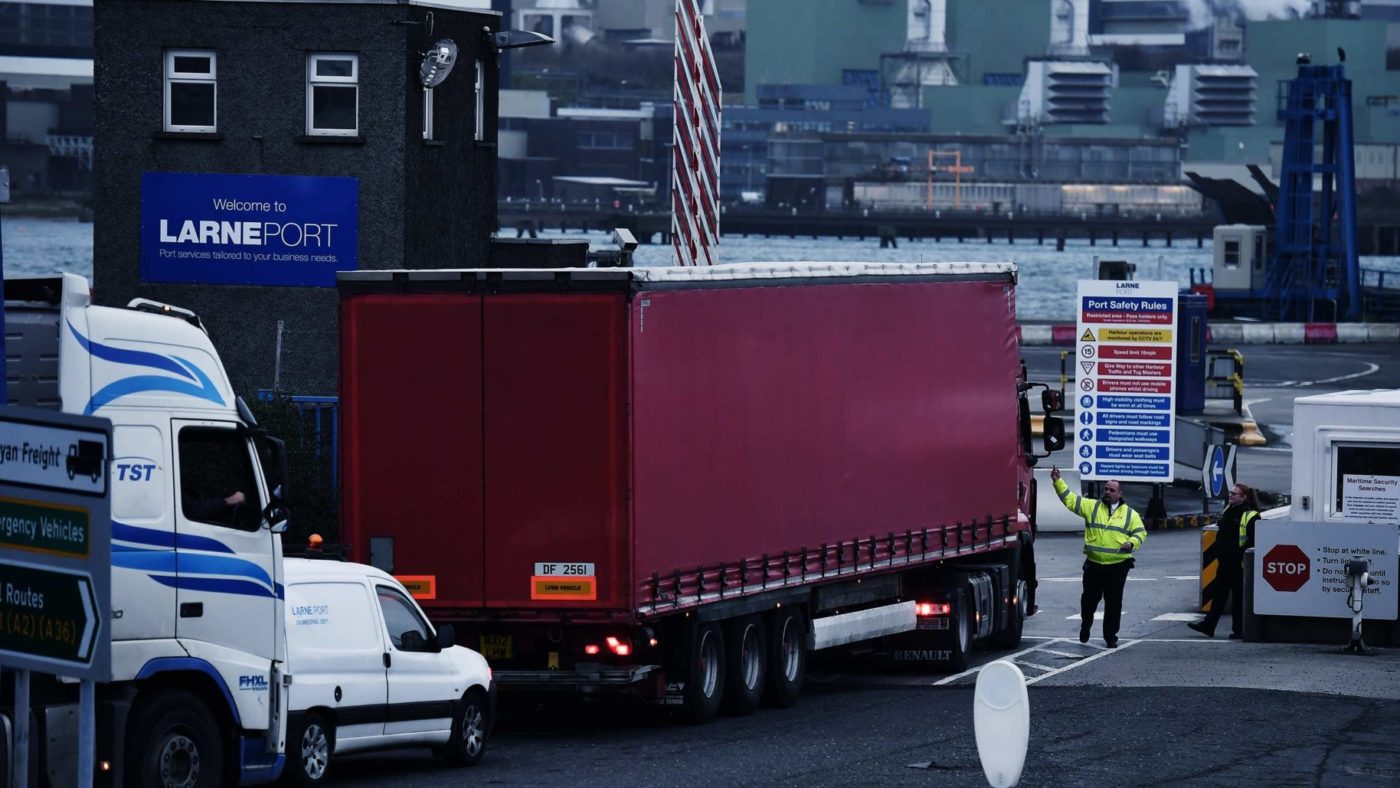It might look like a duck, walk like a duck and talk like a duck, but Boris Johnson and his ministers will have no qualms about telling you it’s a humming-bird if such a claim suits their agenda.
The ‘UK’s Approach to the Northern Ireland Protocol’, published last week, is partly a negotiating document, designed to open up a discussion on how the most controversial feature of the Withdrawal Agreement might operate, and partly a defence of the government’s decision to isolate Ulster from parts of Britain’s internal market. In paragraph 16, the paper insists, “the Protocol does not … create – nor does it include… provision for creating – any kind of international border in the Irish Sea between Great Britain and Northern Ireland”.
That form of words won’t reassure unionists on either side of the water. There has never been a suggestion that the protocol will raise an actual ‘international border’ between the province and the rest of the UK. There is a well-founded assertion, which won’t be dispelled by this document, that it places an effective economic border in the way of trade between Great Britain and Northern Ireland.
The Government’s argument is that the protocol will require only a few relatively unimportant changes to the way that companies do business across the Irish Sea.
It concedes that “expanded infrastructure” will be needed to check animals and food products at Northern Ireland’s ports, but it casts that development as a modest extension of existing arrangements for regulating animal health on the island of Ireland. It doesn’t emphasise that the UK will develop the EU-designated Border Control Posts in Ulster that allow food and animals to enter the single market, nor does it specify how the vast quantity of products destined for branches of national supermarkets in the province will be affected.
The document confirms that Northern Ireland will remain bound by the single market’s rules for manufactured goods. This amounts to the erection of a ‘regulatory border’, which both the government and the DUP agreed to concede before Boris negotiated the protocol in its full horror. Ministers now claim that they intend to enforce standards through “market surveillance” at business premises and shops, rather than at ports. There are references to “risk assessment” but there’s no detail about what might happen if standards in Great Britain don’t match up with EU rules.
The Conservatives were always more categorical in their opposition to customs barriers between Great Britain and Northern Ireland than regulatory hurdles. The irony is that, while Boris Johnson attacked Theresa May for contemplating economic divisions, his version of the protocol contains the elements that look most like a customs border. In the command document, the Government is keen to portray these as minor, administrative changes.
“Only those goods ultimately entering Ireland or the rest of the EU, or at clear and substantial risk of doing so will face tariffs,” it notes. That statement hides as much as it reveals. The protocol deemed all materials for processing are ‘at risk’ from entering the single market if they move from Great Britain to Ulster. That means anything that will be used in manufacturing. If these goods are not exempted by the joint committee, Northern Irish companies must pay tariffs, which they are entitled to claim back if they prove that the finished product remained in the UK.
The pain does not end there. On VAT, the document affirms, “Northern Ireland remains bound by EU rules”. These regulations mean that VAT has to be levied on most products, though the rate is generally decided by the national government – Westminster in Ulster’s case. However, Britain may decide to depart from this regime. In that case, the Government expresses its confidence that it can use “flexibilities” to minimise “new costs and burdens on businesses in Northern Ireland”. This wording leaves open the possibility that consumers will have to pay different rates of VAT on the same product depending upon whether they buy it in Basildon or Belfast.
Unionists will also be alarmed at the provision for the Northern Ireland Human Rights Commission to “monitor, report on and enforce” the UK’s commitment to maintain EU citizens’ rights in Ulster. The Commission is not a dependable, apolitical organisation. When he was shadow justice secretary, Dominic Grieve, a politician not known for rabid opposition to European values, said it was “hard to disagree” with a commentator who described the NIHRC as “a quasi-political pressure group campaigning for a maximalist interpretation of ‘rights’ which includes handing responsibility for socio-economic policy to the judiciary”.
In the command document, the Government argues that the protocol will be applied with a light touch. Northern Irish businesses, it maintains, will notice little to no difference as they trade with Great Britain, while there will be a few minor pieces of administration required to send goods the other direction. Unfortunately, as Theresa May’s former special adviser on Europe, Raoul Ruparel, observes, this is an “opening pitch”. The EU will certainly take a more demanding view of the UK’s commitments and it will be supported by nationalists and the Alliance Party in Northern Ireland, who will follow Brussels’ lead, however injurious the consequences for Ulster’s economy.
And let’s remember. It’s extraordinary that we’re even discussing how to minimise the impact of a major economic fissure within the United Kingdom. Nationalists invented the notion that some minor infrastructure on the Irish land border would infringe the Belfast Agreement and their claim was indulged to the point that the Government has effectively agreed to divide up the UK.
Click here to subscribe to our daily briefing – the best pieces from CapX and across the web.
CapX depends on the generosity of its readers. If you value what we do, please consider making a donation.


